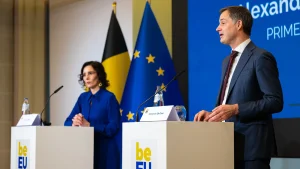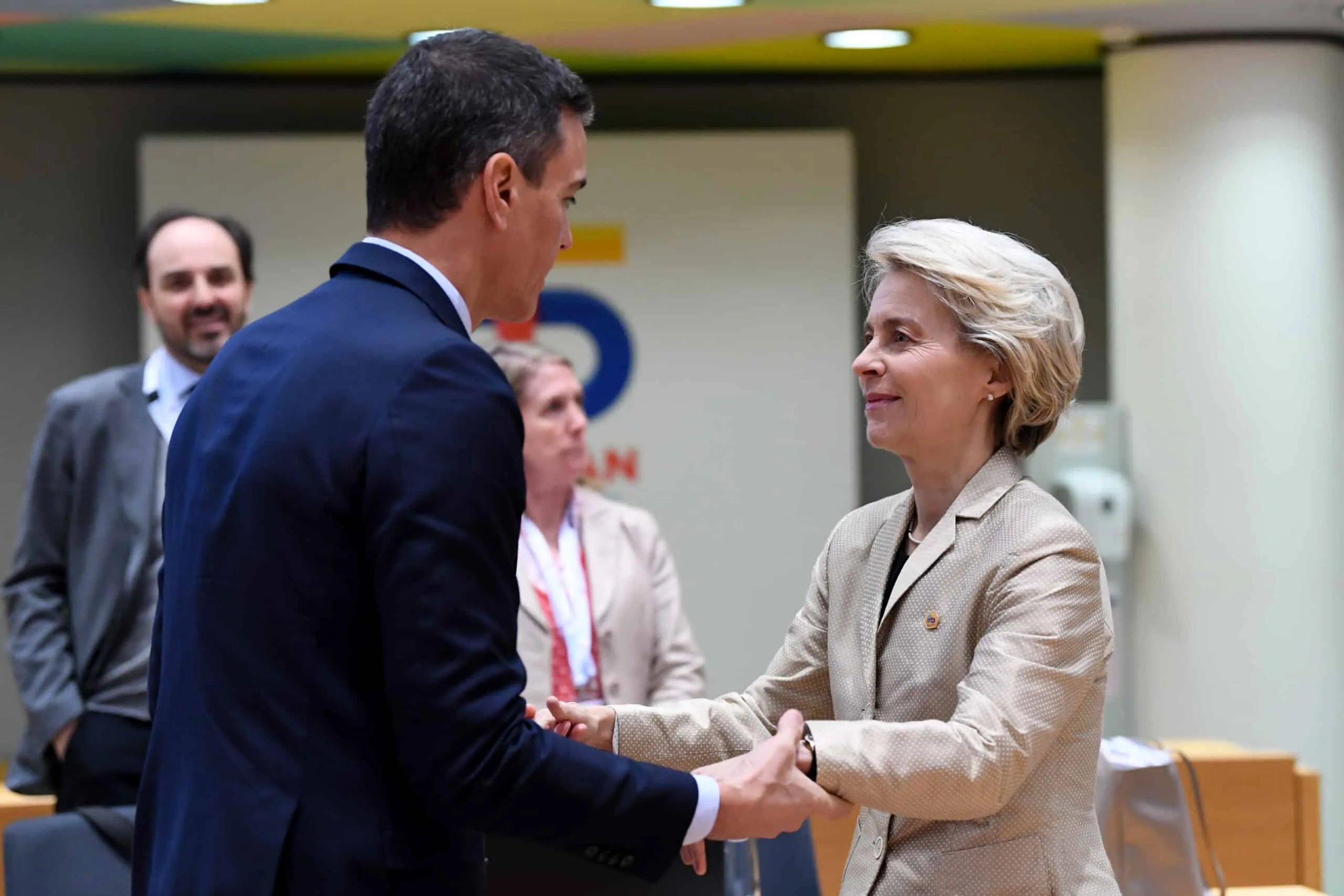Brussels – Protect citizens, strengthen the economy, and prepare for the future: three goals and six key priorities to accomplish them. From yesterday (Jan. 1) until June 30, Belgium will lead the EU’s political agenda, guiding European institutions toward the end of the legislative term and the elections to the new European Parliament on June 6-9 in all 27 EU member states.
It will guarantee continuity – bringing as many files as possible to the finish line (150 ‘pending’ ones remaining) – while, at the same time, starting to think about the strategic agenda for the coming years and the future legislature (2024-2029). Belgium picks up Spain’s political legacy and will lead the political agenda for the 13th time since the European project was born. It will then pass the baton to Hungary’s controversial presidency in July.
Prime Minister Alexander De Croo explained at the traditional press conference at the start of the presidency that the six-month term will focus on six thematic areas and will pay particular attention to maintaining “our firm support for Ukraine.” The six priorities will be defending the rule of law, democracy, and unity; strengthening competitiveness; pursuing a green and just transition; strengthening the social and health agenda; protecting people and borders; and promoting a global Europe.
The EU presidency between budget and reforms
.

With elections just around the corner next June and over 150 dossiers still open (such as the packaging regulation and the new European legislation against violence against women and to introduce a harmonized definition of the crime of rape), Belgium has promised that it will try to finalize as many of them as possible even though it will be hard work.
The first part of the year will likely be devoted to finding a political agreement on the mid-term review of the 2021-2027 multi-year budget, on which the heads of state and government failed in their attempt at the last summit in December and for which an extraordinary European summit has been convened on February 1. But that is not all.
In a post on X Italian prime minister Giorgia Meloni wished Belgian Prime Minister Alexander De Croo ‘good work’, assuring that ‘Italy will continue to play its part in the many European and international dossiers that will see us working together in 2024’.
Buon lavoro a @alexanderdecroo e alla Presidenza di turno belga @EU2024BE del Consiglio dell'Unione europea.
L'Italia continuerà a fare la sua parte nei tanti dossier europei e internazionali che ci vedranno lavorare insieme anche nel 2024.— Giorgia Meloni (@GiorgiaMeloni) January 2, 2024
The task of the Belgian presidency will be to make progress on EU reform so that it goes hand in hand with the enlargement process and future accessions that could lead to a Europe of 35 Member States. Not surprisingly, EU reforms are one of the main themes of this presidency to prepare Europe for the future. “We need to reform the EU, its policies, budgets, and institutions, in view of a next possible enlargement,” reads the presidency website. The discussion on treaty revision that began at the Conference on the Future of Europe will likely to be reduced to a reflection on to overcome unanimous voting in foreign policy, to make the EU more agile in decision-making.
“Given the purposeful steps taken by the EU to continue its enlargement, it has a responsibility to rethink its decision-making and enhance its ability to speak with one voice,” reads the presidency’s program, which says it is “ready to facilitate an open discussion on qualified majority voting in the Common Foreign and Security Policy,” leveraging the final recommendations of the Conference on the Future of Europe.
The Legacy of the Cofoe
It is precisely as a legacy of the Conference (known in Brussels by the acronym ‘CoFoe’) that the presidency initiated a multi-level citizen participation program. The Conference on the Future of Europe is the unique exercise in participatory democracy in the history of the EU that for nearly twelve months between 2021 and 2022 brought 800 citizens – randomly selected from all 27 member states – to discuss the future of the European Union and to identify the priorities to adopt to make the EU integration project more solid.
In the wake of the Cofoe panels, at the national level, the Belgian presidency will organize a group of randomly selected citizens who will meet in Brussels over three weekends to discuss issues related to the European Union and share their visions for the future. This panel of citizens will target everyone, young people in particular, who will have the opportunity to vote for the first time in the June 2024 European elections. Sixty citizens will be randomly selected to make up the panel.
Local authorities will then organize about a dozen decentralized citizen events in several Belgian cities, including Gand and Malines. The idea of the Belgian presidency is that these events will allow citizens to participate in discussions about the EU in their region and actively contribute to the creation of a citizen democracy in Europe that is closer to its citizens.
English version by the Translation Service of Withub






